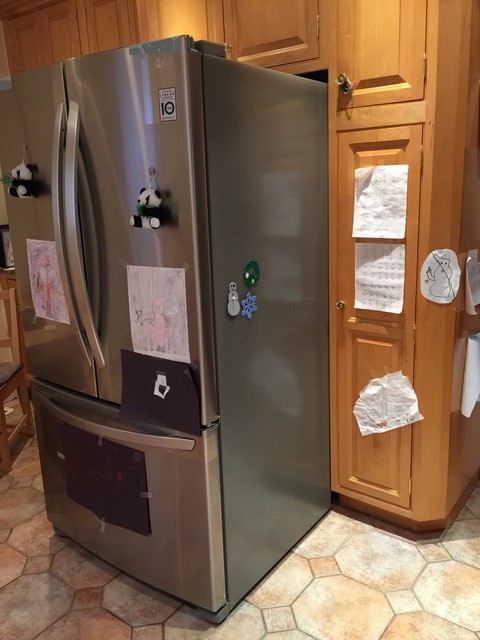

Is your refrigerator making a loud buzzing sound, disrupting your quiet evening? A buzzing refrigerator can be a frustrating problem, often a sign of a more complex issue requiring attention. This thorough guide dives into the likely culprits behind a buzzing refrigerator, offering practical solutions to restore your kitchen’s peace and quiet. We’ll cover everything from easily fixable loose parts to potentially more involved compressor or fan problems. We’ll break down the troubleshooting process, providing clear steps and descriptions to help you determine the source of the buzzing sound and take the appropriate action. Ready to silence that buzzing and get your fridge humming again?
determineing the Source of the Buzzing Sound
Compressor Issues
The compressor is the heart of your refrigerator, responsible for circulating the refrigerant and maintaining the cooling cycle. A malfunctioning compressor can produce a variety of unusual noises, including a loud buzzing sound. This buzzing often signifies a problem with the compressor motor itself, electrical issues, or even worn-out bearings. Sometimes, a loose belt or pulley can cause a similar buzzing noise that might be easily remedied. It’s crucial to remember that handling the compressor yourself can be risky and could lead to additional damage. A qualified technician should be consulted in such situations.
Fan Problems
The condenser fan helps cool the refrigerant and is a key component in the cooling process. If the condenser fan bearings are worn, they may produce a high-pitched buzzing noise. Sometimes, the fan belt may also loosen, outcomeing in a loud buzzing. Inspecting the fan and its connections for any sign of damage or misalignment can help determine the issue. It’s crucial to always unplug the refrigerator before working on any electrical components.
Troubleshooting the Buzzing Sound
Related Post : Dryer Not Spinning? Simple Checks Before Calling a Technician
Electrical Issues
Electrical problems in your refrigerator can manifest as a buzzing sound. Loose connections, faulty wiring, or a tripped circuit breaker can all contribute to the buzzing noise. A thorough inspection of all wiring and connections can help pinpoint any loose wires or damaged parts. If the buzzing sound is accompanied by other issues like lights not functioning properly or the refrigerator not cooling, electrical problems are a likely culprit.
Loose Parts
Sometimes, the buzzing sound is simply a outcome of loose parts within the refrigerator. A loose mounting bracket, a vibrating fan blade, or a loose compressor pulley can all generate buzzing sounds. A visual inspection of the interior and exterior components of the refrigerator, including the compressor, condenser fan, and motor, will allow you to check for loose parts and make the required adjustments.
Advanced Troubleshooting: Compressor and Fan Issues in Detail
Compressor Issues (Advanced)
For more complex cases, a problem with the compressor itself is possible. Unusual vibrations and internal components that are worn can be the cause. Sometimes, issues like a build-up of ice or frost can lead to these issues. Compressor issues can often signal a more significant problem, so professional diagnosis is advisable. Refrigerant leaks and electrical problems that affect the compressor are also possible culprits.
Fan Issues (Advanced)
Similarly, the fan can experience more significant issues, including bearing failure. This can lead to boostd noise, particularly a loud, high-pitched buzzing sound. determineing the issue may require visual inspection of the fan assembly, motor connections, and the lubrication of its components. If the issue is beyond your skill level, don’t hesitate to call a qualified technician for professional repair.
Preventive Measures and Maintenance
Regular Maintenance
Regular maintenance can significantly extend the lifespan of your refrigerator and minimize the risk of loud buzzing or other issues. Cleaning the condenser coils behind the refrigerator at least once a year is crucial, to prevent any blockages that affect airflow. Checking electrical connections for tightness and ensuring proper grounding will prevent potential electrical hazards and minimize problems. Routine inspections for loose parts or unusual vibrations are also essential preventive measures.
Monitoring for Signs of Problems
Be attentive to any changes in your refrigerator’s operation. If you notice a gradual boost in the buzzing sound, or any other unusual noises, it’s optimal to address it promptly. Proactive monitoring can prevent minor issues from escalating into more significant problems that might be difficult to fix.
When to Call a Technician
Signs of Significant Issues
If you’ve tried basic troubleshooting and the buzzing sound persists, or if you’re uncomfortable performing any repair work, it’s crucial to call a qualified appliance repair technician. Some signs that indicate you should call a technician include a buzzing sound that doesn’t stop, a burning smell emanating from the refrigerator, or if you notice any refrigerant leaks or other visual damage. A professional can correctly diagnose the problem and offer effective solutions.
In conclusion, a refrigerator making a loud buzzing sound often points to a straightforward fix, like a loose or malfunctioning part. Understanding the potential causes, from compressor issues to fan problems, is crucial for efficient troubleshooting. By systematically checking and addressing these facets, you can likely resolve the issue without significant costs. If the buzzing persists or if you feel uncomfortable attempting repairs yourself, seeking professional assistance is always recommended. A qualified technician can accurately diagnose the problem and ensure your refrigerator operates smoothly and efficiently for years to come.